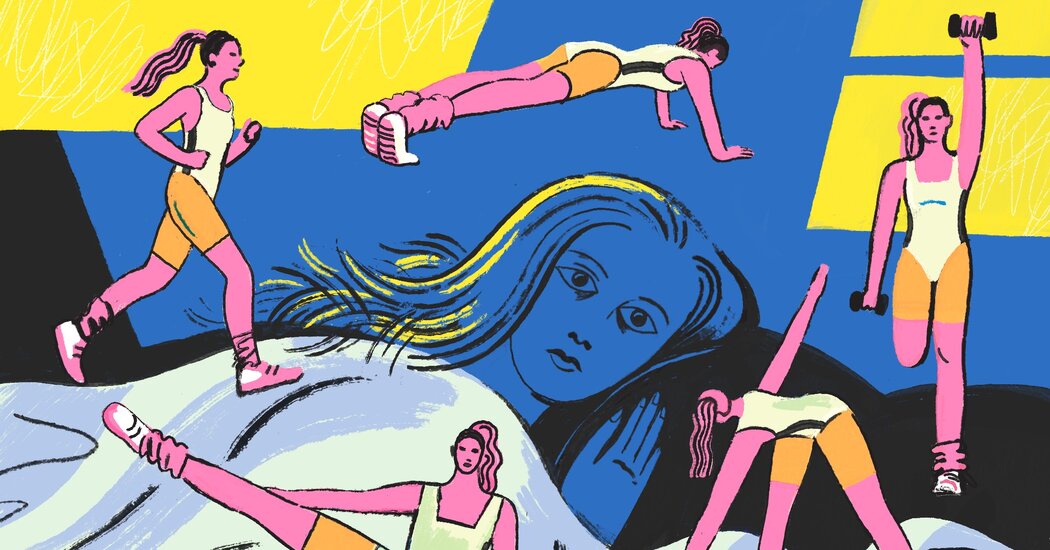A fitness routine can be key to a good night’s rest. But too much exercise at the wrong time could can aggravate insomnia.
Sleep and exercise work together like gears in a machine: When one turns smoothly, the other follows suit. Quality sleep supports athletic recovery and performance, while exercise releases useful brain chemicals, lowers stress and can help you fall asleep faster.
But for those battling insomnia, the rules can be different; even a small misalignment can throw the gears out of sync. Just as the benefits go hand-in-hand, so do the drawbacks: Exercise can stress the body, much like sleep deprivation itself. Exercising too intensely, too late in the day or too often can backfire, making it harder to drift off or stay asleep.
While most people don’t have to be overly mindful about workout routines affecting their sleep, those with insomnia — chronic dissatisfaction with sleep quality or quantity for at least three nights a week over three months — are more sensitive.
“People with full-blown insomnia tend to have a hyperactive stress system. Stressors tend to have a bit of an exaggerated response in the body,” said Dr. Christopher Kline, an associate professor of health and human development at the University of Pittsburgh. People with insomnia may not respond as well or recover as efficiently from the physical demands of exercise, he added.
But there are ways to exercise regularly without worsening sleep issues.
Why exercise sometimes leads to poor sleep
When you complete a grueling workout, you might expect to crash as soon as your head hits the pillow. But “you can’t exercise yourself to sleep,” said Dr. Kelly Baron, who is a clinical psychologist and the director of the behavioral sleep medicine program at the University of Utah.
She continued: “Sure, sometimes you can feel really physically tired from exercise, but it doesn’t mean you’re going to necessarily sleep better.”
